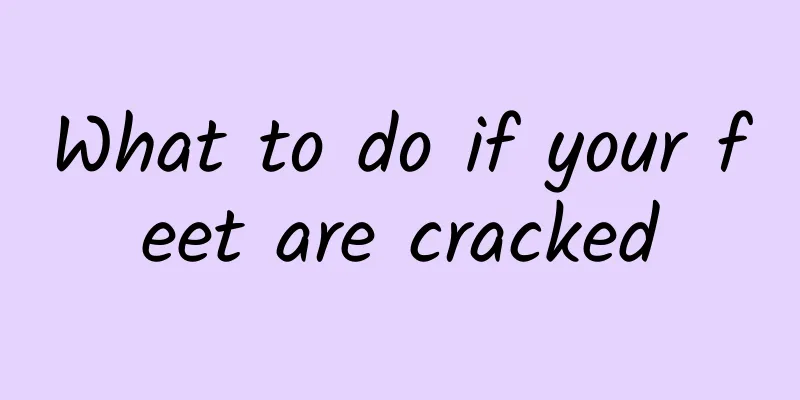Why do we use nails to correct teeth?

|
When correcting teeth, nails are often needed. This kind of nail is actually called an anchorage nail, also called a mini bone nail. It is a common auxiliary tool for correcting teeth. After the correction is completely completed, the nail must be removed. The site where the bone nail is inserted will recover well on its own. Its main function is to fix the teeth and help pull the teeth. It is very effective in correcting protruding teeth, excessive eruption of molars, etc. What is an anchor nail? Mini bone screws (referred to as bone screws, as shown in the circle in the picture above) are temporary mini implants that are implanted into the alveolar bone. Because of its superior function and simple implantation, it has become an increasingly popular auxiliary tool for corrective treatment in recent years. After the correction is completed, the bone screws will be removed and the gaps in the bone screws will heal on their own. Domestic and foreign research reports have shown that bone screws can safely and effectively assist in corrective treatment. Its function is to provide a fixed source of force to help pull the teeth. It has a very good effect in correcting protruding teeth, gummy smile, deep bite, over-eruption of molars, and the need for receding teeth, and can achieve results that are difficult to achieve with traditional orthodontics. Among them, the most commonly used clinical case is probably protruding teeth. With bone screws, they can help you pull your teeth back 24 hours a day to correct the protruding teeth face shape. Oral implant anchorage is the process of implanting bone screws into the patient's maxillary posterior teeth, mandibular posterior teeth, hard palate, tooth alveolar intervals, etc., using these implanted micro-implants as anchorage for orthodontic treatment to move the misaligned teeth, thereby achieving the purpose of correcting malocclusion. During the orthodontic process, the key to correcting misaligned teeth into neat and orderly ones lies in the design and control of orthodontic anchorage. During orthodontic treatment, it is important to ensure that the teeth that should move move and the teeth that should not move do not move. This is an important factor in achieving high-quality and successful orthodontic treatment. Generally speaking, anchor nails have these uses 1. Lip protrusion, tooth extraction correction, using anchorage pins to retract the anterior teeth to the maximum extent to close the extraction space, so that the profile is significantly improved; 2. Lower the upper front teeth to reduce the deep overbite or prevent the bite from deepening 3. Lower the lower front teeth to reduce overbite and help improve the appearance of "underbite"; 4. Move the back teeth forward to close the gap; 5. Vertically tilted posterior teeth; 6. To intrude the long-term lost posterior teeth to prepare for their restoration. Does it hurt to have support nails inserted? The anchor pins are implanted on the bones, using the force of the bones to move the teeth to the desired position, greatly improving the efficiency of our orthodontic treatment. Many friends who have undergone orthodontic treatment will be shocked when they hear that they are implanted on the bones: "Oh my God, it must be painful to be implanted on the bones!" In fact, it doesn’t hurt at all! If you have ever had a tooth extracted, that's great. Compared to having an implant, having a tooth extracted is like getting a cut or a shot. There are not many pain-sensing nerve endings distributed in our alveolar bones, and there is no obvious pain after the anesthetic wears off. Moreover, there will be no bleeding after the implantation, and you don’t need to avoid certain foods. You can immediately put on traction, and your teeth will slowly become beautiful 24 hours a day. Are there any risks in having support nails inserted? The risks of anchorage screw placement are minimal. The loosening of the anchorage screw itself will not cause any harm, you just need to re-implant it in another location. In short, anchorage nails are one of the biggest revolutionary breakthroughs in orthodontic treatment in recent years. They have a variety of uses and greatly improve the effectiveness and efficiency of orthodontic treatment. The anchorage nail implantation surgery is safe, time-saving, low-risk, low-cost, and causes little discomfort during and after the surgery. It has become an indispensable tool for high-level orthodontic treatment. |
<<: How to adjust the bite of teeth
>>: Why do children's teeth become chipped?
Recommend
What are the symptoms of lymphatic blockage?
Lymph is an immune system of the human body. If t...
What causes vulvar burning pain
There are many reasons for female vulva burning p...
How to reduce belly fat?
In daily life, a bulging belly is a relatively co...
Can mastitis cause a fever?
Mastitis affects women's breast health, and s...
What should not be taken with Maca?
Since maca is a traditional Chinese medicine, the...
Best treatment for yellow warts
Xanthelasma palpebral may sound unfamiliar to us,...
Common diseases in rheumatology
Rheumatology and immunology is an emerging discip...
What are some tips for preventing diseases in autumn?
Autumn is a very beautiful season because the tem...
Is high prolactin related to sleep?
High prolactin rarely occurs in men, but mostly o...
What are the benefits of washing the vulva with toothpaste?
We all know that women are very clean, maybe it&#...
Can I take anti-inflammatory drugs if I have thrombocytopenia?
There are many elements in our body that are very...
What is sepsis? Common symptoms and causes of sepsis
Sepsis is a systemic inflammatory disease. The ca...
What are the precautions for intravenous potassium supplementation?
The hot summer is here. Because the weather is ho...
How to remove ankle effusion
Fluid effusion in the ankle is a relatively serio...
Sweating more easily than the average person
In fact, the symptom of sweating can also reflect...









